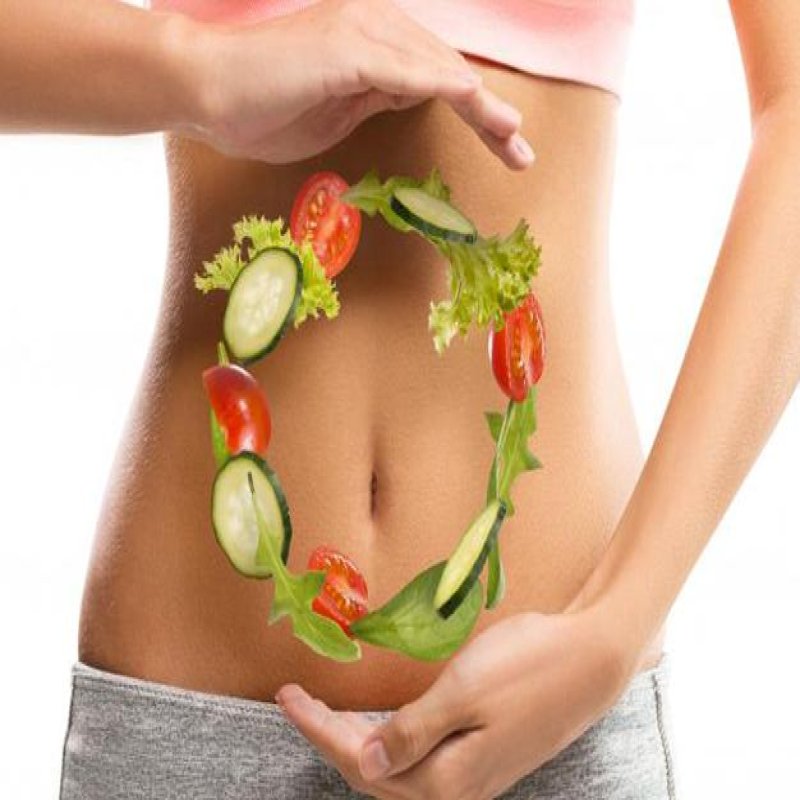
“Eat this or else you won’t get big and healthy” is something we all heard as children. From a young age, we are told to eat our fruits and vegetables and drink our milk. That’s because they deliver nutrients and vitamins, which are necessary for the development of a strong and healthy body. Here we talk about our body’s nutrient absorption and the factors that influence it!
The stomach digests the micronutrients and macronutrients found in foods. Our body uses this digested food to support various functions. But did you know there is something called “hidden hunger”? This kind of hunger is the one where we may have eaten to our capacity, but there are little to no nutrients in the food. This leaves the body starving for nutrients. So, the food we consume must contain enough nutrients required by the body.
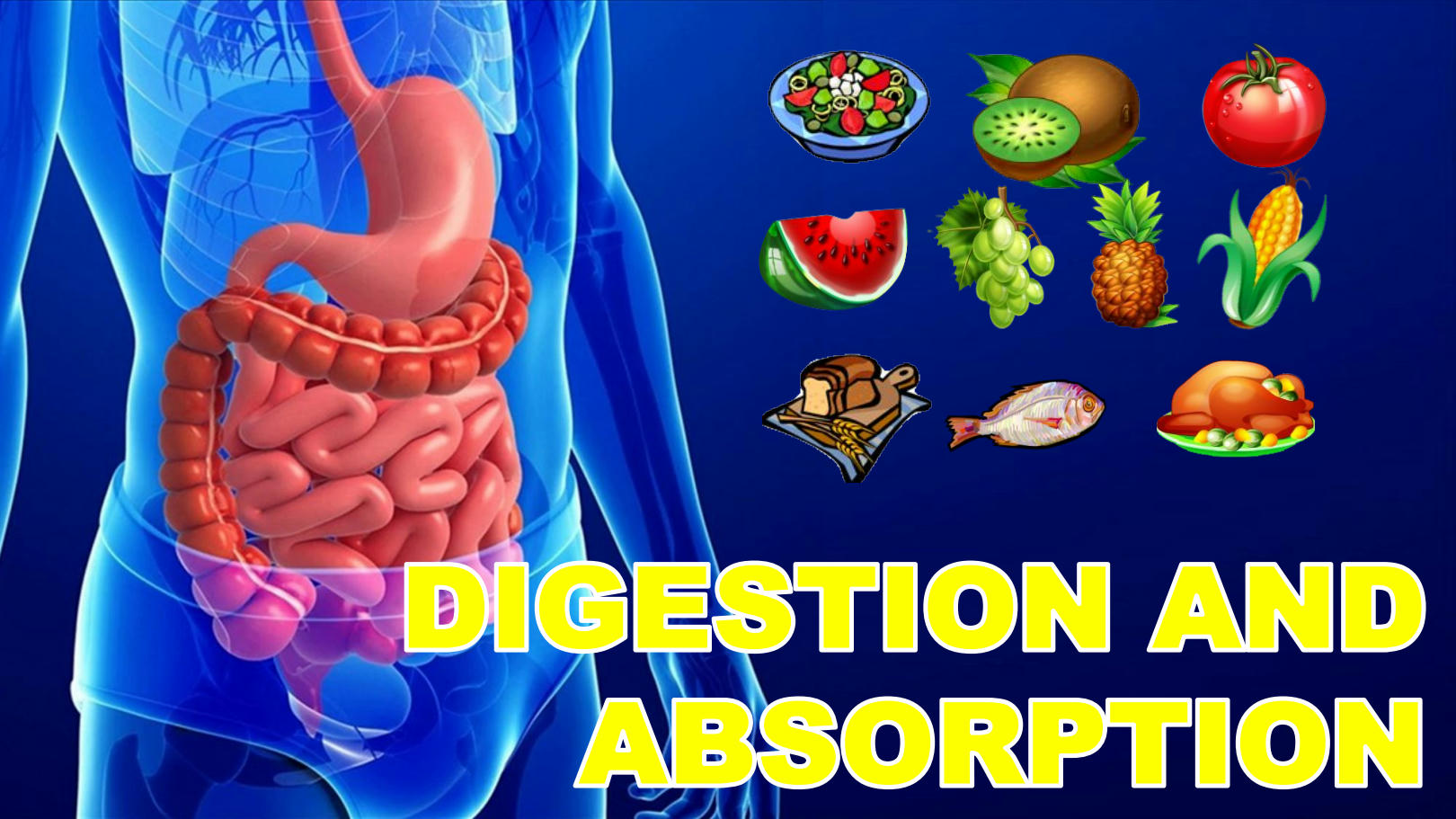
The foods that we eat are digested in the gut. The result of the digestion process is the essential nutrients our body needs. But sometimes these nutrients might not be properly absorbed by the body. In fact, there are certain factors that might impair the gut’s ability to absorb nutrients efficiently.
In a recent study, the Washington University School of Medicine observed that the bacteria present in the gut play a major role in our body’s ability to receive nourishment from the foods that we eat.
The Process of Absorption of Nutrients in the Digestive System
Our digestive system turns the food we eat into nutrients required by the body for energy, growth, and cell repair. It is a complex system made up of the gastrointestinal (GI) tract or digestive tract and the organs—the liver, pancreas, and gallbladder. The GI tract is a long, hollow tube joining the hollow organs—mouth, esophagus, stomach, small intestine, large intestine, and anus. Let’s discuss how the process of absorption of nutrients in the digestive system actually takes place:
Step 1: The Journey of Digestion Begins with the Mouth
The digestive tract begins in the mouth where the process of digestion starts as soon as we take a bite of food. Chewing action breaks down the food into small particles, while the saliva begins to break down starches in the food and makes the food slippery for an easy downward movement. After the swallowing, the peristaltic movements of the esophagus push the slippery mass of food, called bolus, to the stomach.
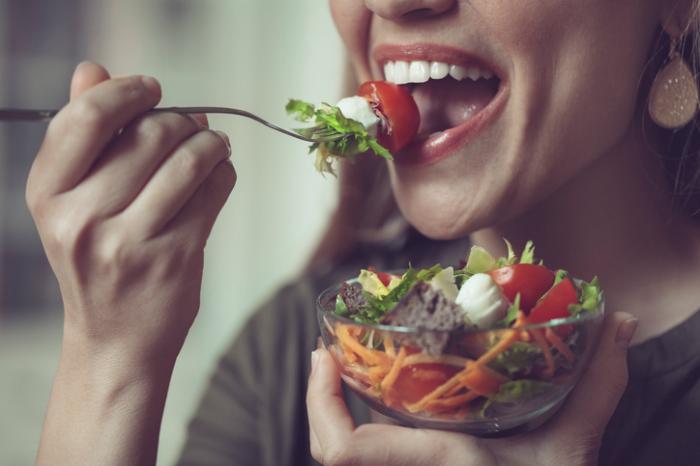
Step 2: Digestion in the Stomach
Consider the stomach to be a sac with strong muscular walls. It holds the food and doubles up as a mixer and grinder. The food stays here for approximately 4 to 5 hours.
![]()
The stomach contains various digestive bacteria and enzymes that work to break down food into smaller molecules. Further, food in the stomach mixes thoroughly due to the churning movement of the stomach muscles. Mainly, protein absorption takes place at this stage, and the foundation is laid for B12 absorption.
When it leaves the stomach, food has the consistency of a liquid or paste called chyme. From there, the food moves to the small intestine.
Step 3: Absorption of Nutrient in the Small Intestine
In addition to the secretions of the stomach, the small intestine receives secretions from the pancreas and bile (from the liver through the gallbladder, the storage unit). These juices help the small intestine further break down and absorb nutrients.
A lot of work happens here. Bile aids in fat digestion and eliminates waste products from the blood. Food is broken down into glucose, fructose, and galactose, among sugars, fatty acids, and glycerol.
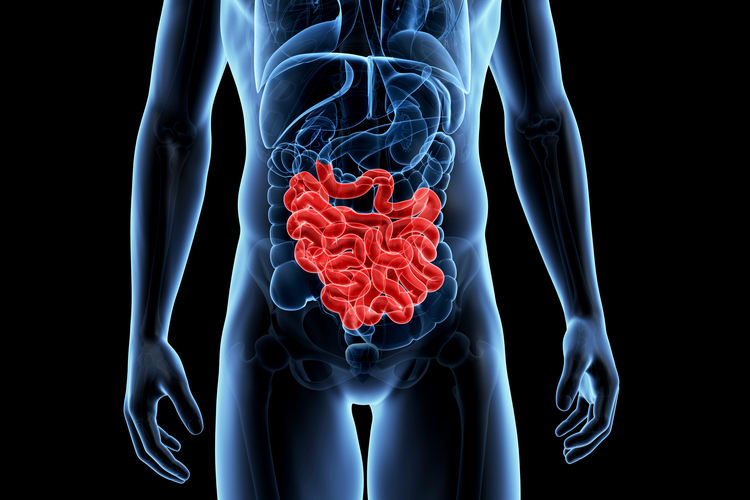
The small intestine does the bulk of absorption. Tiny finger-like projections called villi present in the small intestine absorb these nutrients into the bloodstream. These nutrients pass through your circulatory system to different parts of your body for storage or for use.
Step 4: Passage through the Large Intestine
Most of the digestion has already taken place. However, minerals, such as sodium and potassium, are absorbed in the large intestine. The role of the large intestine is to mainly reabsorb water. The only food breakdown that takes place here is through the gut microbiome. The gut microbiome synthesizes essential nutrients, vitamin K, etc. from undigested food and dietary fiber. The current hype surrounding probiotics for gut health comes as no surprise at all!
Importance of Nutrient Absorption
Proper nutrient absorption is a key influencer in determining the well-being of a person’s health. This is because these nutrients are vital for the proper functioning of the body. However, due to various factors, positive or negative, the body’s nutrient absorption capacity can vary from 10% to 90%. When nutrient absorption is low over a prolonged period of time, noticeable negative changes begin to show up, which include exhaustion, fatigue, and poor health.

Sometimes not only your body is at fault for poor nutrient absorption, but it's also the nutrient content of the food that you eat. For instance, although bananas contain 422 mg of potassium, that number may actually be an average based on 14 different banana samples, which had a range of potassium between 364 mg and 502 mg. This means that the nutrient content in the food is not always the same as labeled and might differ due to variations in factors such as species, environment, and their method of cultivation.
However, that being said, it is possible to deliver the nutrients required for your body’s optimal health condition by improving the absorption capacity of your gut.
A Few Key Considerations to Keep in Mind to make the most out of the Food you Eat
Lifestyle Approach
Modern lifestyle is stressful and it can have detrimental effects on the body’s ability to absorb dietary nutrients.
The gut is very sensitive to stress and behavioral changes. High levels of stress put pressure, not only on your gut but on your whole body. The level of stress can negatively affect the functioning of the gut which in turn affects our overall health and well-being. Some studies have shown that emotions affect the functioning of the gut and how it processes digestion.
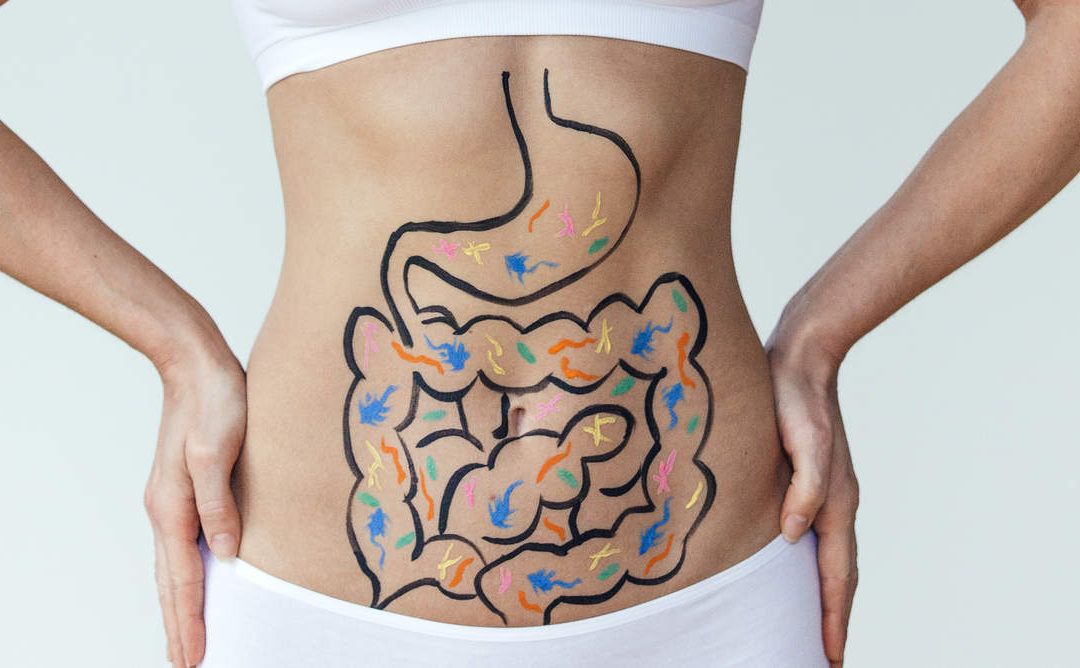
Stress can trigger abdominal pain, discomfort, bloating, diarrhea, and constipation. Stress disrupts the delicate balance of the gut bacteria, increasing intestinal permeability. It makes the brain release stress hormones to deal with it. This may slow down digestion in the stomach so that your body can devote all its energy to dealing with the stress.
Click to know, why good sleep is critical for your health!
When you’re stressed, the hormones tend to fluctuate which can directly affect your metabolism, nutritional balance, and even mental clarity.
Consumption of alcohol, caffeine, or tobacco tends to decrease the absorption of nutrients by stirring up temporary inflammation of the intestinal lining. It further negatively impacts digestive enzymes. So, you must have your meal 3-4 hours prior to or after the consumption of such products, though the best thing is to avoid the consumption of such products. Instead, eat healthy foods like raspberries or asparagus which have been shown to reduce cortisol (hormones released in response to stress) levels in the body. Exercise is also an excellent way to combat stress which is crucial in many ways.
Processing of Food
The body requires various types of nutrients for optimal health, as does the gut microbiome. Consume foods rich in minerals and nutrients like manganese, copper, iron, vitamins, etc. to have a healthier gut.
Underscoring the importance of gut health, Monica Reinagel, a board-certified, licensed nutritionist and professionally-trained chef, says that strategically combining certain foods can actually influence how effectively your body is absorbing the nutrients.
Eating raw or partially cooked vegetables with healthy fats like olive oil or avocado can enhance the absorption of fat-soluble vitamins A, D, E, and K. A healthy gut diet is a diversified diet plan that helps streamline the digestive process. It ensures we get nutrients from the foods we’re eating efficiently and effectively.
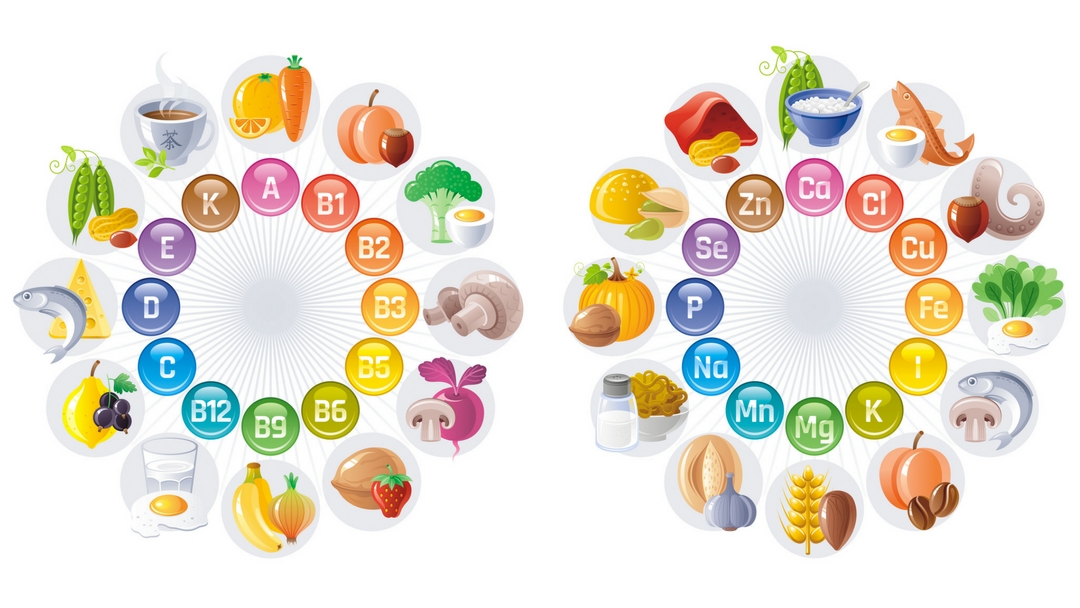
Cooking may cause nutrient loss. Additionally, cooking vegetables may lead to the loss of nutrients as heat/ cooking breaks down vitamin B1, vitamin B5, folate, and vitamin C. So, you get more of certain nutrients when you eat it raw. For instance, raw spinach contains 3 times more vitamin C than cooked spinach.
While foods tend to lose nutrients when cooked, there are some foods whose nutrient bioavailability increases when cooked. For example, research shows that lycopene increases by 25 percent when tomatoes boil for 30 minutes. The bioavailability of beta-carotene, found in tomatoes, carrots, and sweet potatoes, also increases as cooking helps break down the plant’s cell walls.
But juicing may increase nutrient availability. Blending or juicing certain foods can actually make some nutrients more bioavailable and easier to absorb. However, soaking the food reduces phytic acid. Phytic acid reduction might block your absorption of certain nutrients like iron, zinc, calcium, and magnesium.
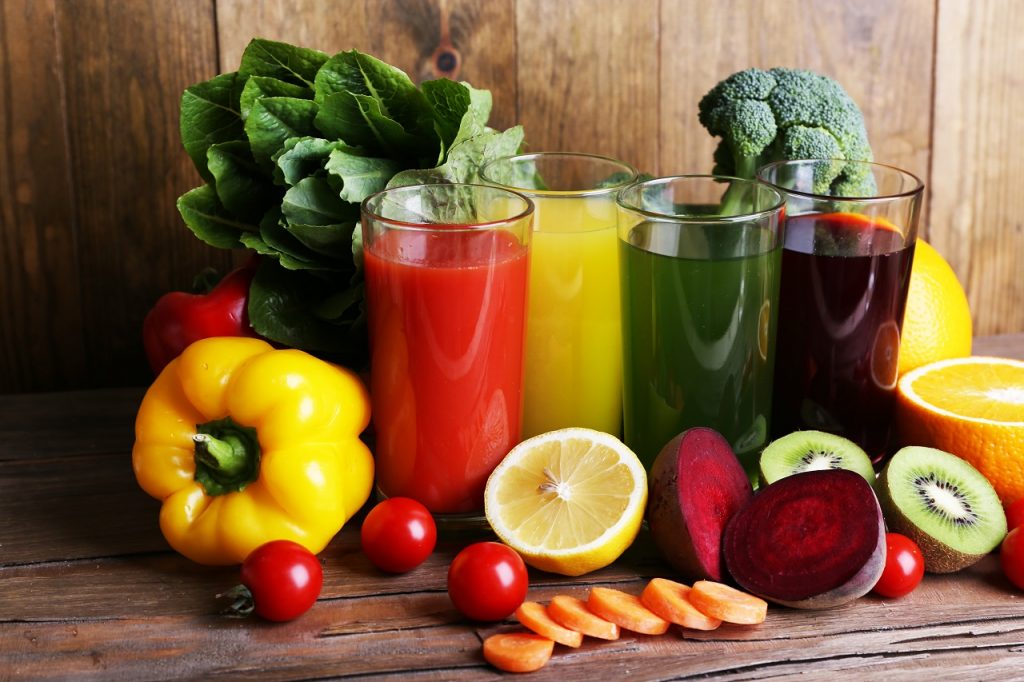
Crushing and chopping onion and garlic releases an enzyme called alliinase, which helps form a compound called allicin. Allicin helps form other compounds in the body that may protect us against diseases. Additionally, cutting up vegetables tends to free up more nutrients as they break the cell wall.
How to Improve Gut Health Naturally?
Our gut is home to 100 trillion bacteria living within the gastrointestinal tract. These microbes are essential for the proper functioning of the gut. More than 80% of the human immune system cells are living within the intestines.
Evidence-based researches suggest that gut microorganisms also play a crucial role in the harvest, storage, and output of energy. They also have a direct effect on our immune response and play an integral role in how we feel each day.
According to researchers at Southern Illinois University, the colon hosts about one billion bacteria per gram of stool. The majority of these bacteria are beneficial to us including Lactobacillus and Bifidobacterium. They help stimulate the digestion of food and absorption of nutrients.
Click here to read our blog on how you can improve your gut health naturally!
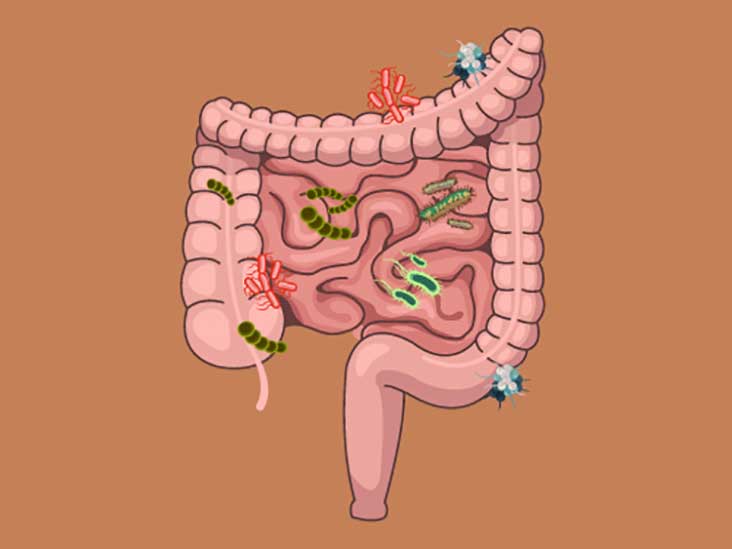
Unfortunately, the beneficial microbes of the gut wash out or destroy when we overuse anti-microbials and antibiotics. Frequent consumption of processed and unhealthy foods or exposure to environmental toxins and other modern lifestyle hazards also affects our gut microbiome.
Probiotic foods help populate the beneficial bacteria present in the gut. They also ensure proper nutrient absorption by the body. One probiotic strain, in particular, GanedenBC30, added to a wide range of food products, is found to be beneficial for breaking down proteins. Proper nutrient absorption will maximize the impact of any vitamins and nutrients. In short, probiotics are one of the best foods you can take. Probiotics ensure that all of the other beneficial foods and supplements in your diet are effective.
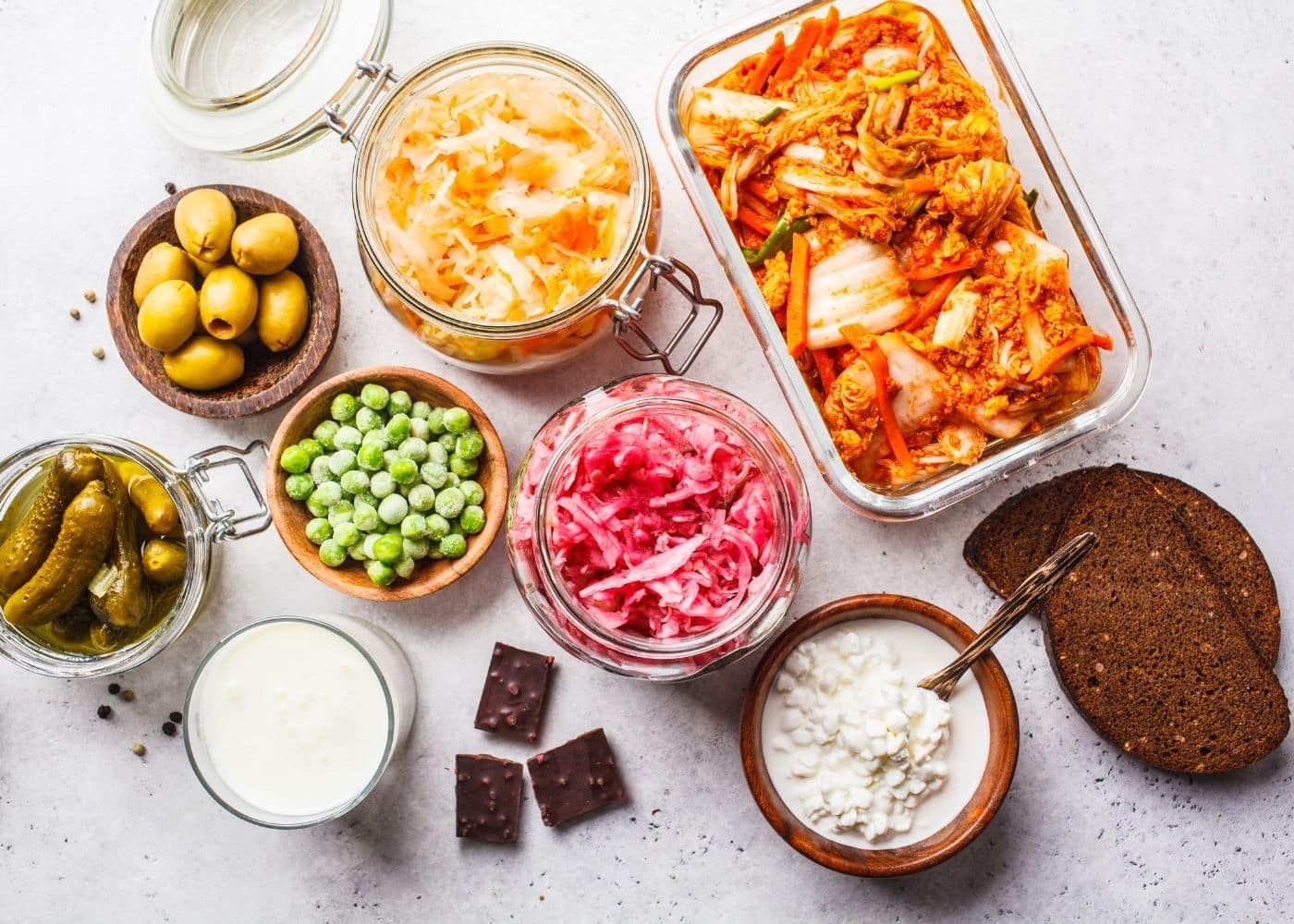
The Importance of Gut Health can’t be Overstated
By limiting your stress levels, taking care of your gut, maintaining a wholesome diet high in plant-based foods, and supplementing with high-quality probiotic foods, you can improve your nutrient absorption and make the most out of the nutrients that you eat for optimal health.



.png)


